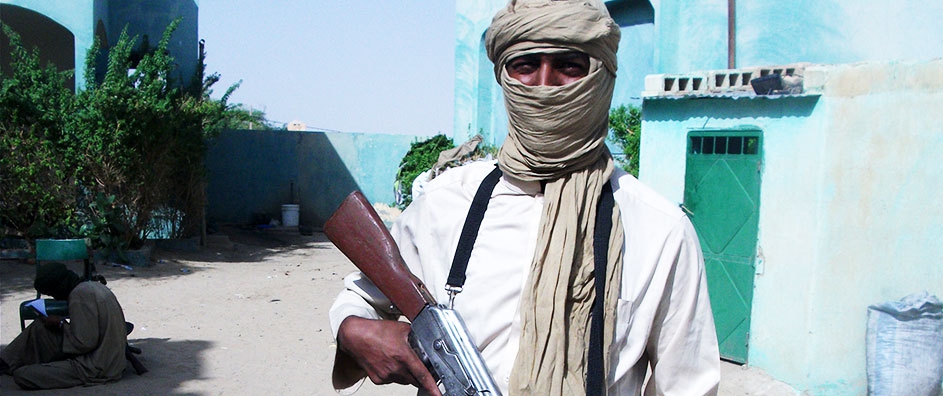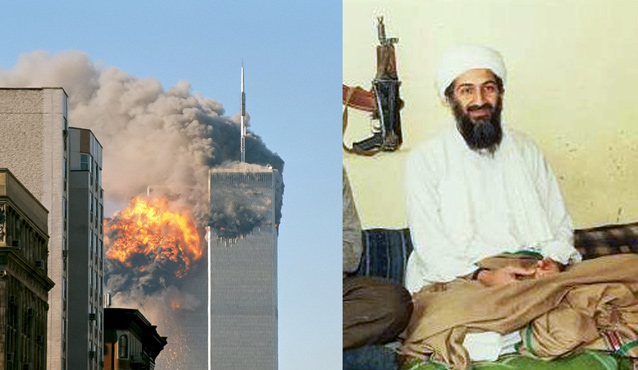The views expressed in our content reflect individual perspectives and do not represent the authoritative views of the Baha'i Faith.
Authentic religion engages the intellect as people wrestle with the mystery of existence and the challenges of living in an imperfect world. Conversely, blind obedience is a sure sign of a corrupt religion. Beware of any religious movement that seeks to limit the intellectual freedom and individual integrity of its adherents. When individual believers abdicate personal responsibility and yield to the authority of a charismatic leader or become enslaved to particular ideas or teachings, religion can easily become the framework for violence and destruction. – Dr. Charles Kimball, When Religion Becomes Evil, p. 72.
Everyone has heard of religious groups that require blind obedience, shut off the intellectual freedom of their adherents or imperil their individual integrity. All we have to do is read the headlines:
Aum Shinrikyo Cult Releases Nerve Gas in Tokyo Subway (March 20, 1995) Burmese Buddhist Monks Goad Mobs to Kill Muslims (July 14, 2013)
Fanatical Christian Assassinates Planned Parenthood Physician in Church (May 31, 2009) Thousands of Innocent Muslims Killed by Hindu Fanatics in Gujarat (November 2, 2002) Israeli Prime Minister Yitzhak Rabin Assassinated by Fanatical Zionist (November 4. 1995) World Trade Center Suicide Missions Kill Thousands (September 11, 2001)
These individuals and groups of people – violent, fanatical extremists who use the cover of religion to justify their hatred and killing of others – do not reflect the largely peaceful, loving and faithful religious communities they claim to represent. Millions of Hindus, Buddhists, Jews, Christians and Moslems live by the kind and loving principles of their Faiths, and the tiny minorities of extremists and fanatics that claim to represent them only besmirch and dishonor those Faiths and their original message. The Baha’i teachings strongly oppose all forms of religious fanaticism and hatred:
Religious fanaticism and hatred are a world-devouring fire, whose violence none can quench. The Hand of Divine power can, alone, deliver mankind from this desolating affliction….The utterance of God is a lamp, whose light is these words: Ye are the fruits of one tree, and the leaves of one branch. Deal ye one with another with the utmost love and harmony, with friendliness and fellowship. – Gleanings from the Writings of Baha’u’llah, p. 288.
Generally, according to many scholars of religion, fanatical religious groups have three main identifying characteristics — they tend to be led by charismatic authority figures; they often adopt and adhere to apocalyptic doctrines that predict the end of the world; and they withdraw from human society, isolating themselves from others:
Intellectual freedom, personal integrity and common sense are indispensable in authentic religion… Any religious group that largely withdraws from society needs to ensure that people can think and make important decisions for themselves. A segregated group in which the thinking and critical decisions reside with one or a few people, particularly when apocalyptic teaching is involved, is a disaster waiting to happen. – Kimball, p. 95.
The Baha’i teachings represent the exact opposite of this pattern of blind obedience. Baha’is have no clergy, priestly class or authority figures. All decision-making authority in the Baha’i Faith rests with democratically-elected administrative bodies called Spiritual Assemblies – or, at the international level, the Universal House of Justice. Individuals have no decision-making power. And the Baha’i writings protect the right of each Baha’i to self-expression:
Let us also remember that at the very root of the [Baha’i] Cause lies the principle of the undoubted right of the individual to self-expression, his freedom to declare his conscience and set forth his views. …Let us also bear in mind that the keynote of the Cause of God is not dictatorial authority but humble fellowship, not arbitrary power, but the spirit of frank and loving consultation. – Shoghi Effendi, Principles of Bahai Administration, p. 43.
The Baha’i writings contain no apocalyptic teachings. In fact, they promise the opposite — Baha’u’llah affirms the eventual rise of a golden age of human development, a time when humanity will live in peace, harmony, and unity. This noble goal, which all Baha’is work toward, signalizes the coming of age of the entire human race and the inauguration of a world civilization. It envisions an end to religious, racial and national hostility. And it encourages people of all faiths to accept and work with one another in a spirit of loving fellowship. Finally, the Baha’i Faith encourages each person to engage as productively and proactively as possible with every aspect of human society. Baha’is enthusiastically praise, promote and prioritize involvement with society’s issues, needs and requirements, by trying to follow this encouraging advice from Baha’u’llah:
Be anxiously concerned with the needs of the age ye live in, and center your deliberations on its exigencies and requirements. – Gleanings from the Writings of Baha’u’llah, p. 213.


















Comments
Sign in or create an account
Continue with Googleor